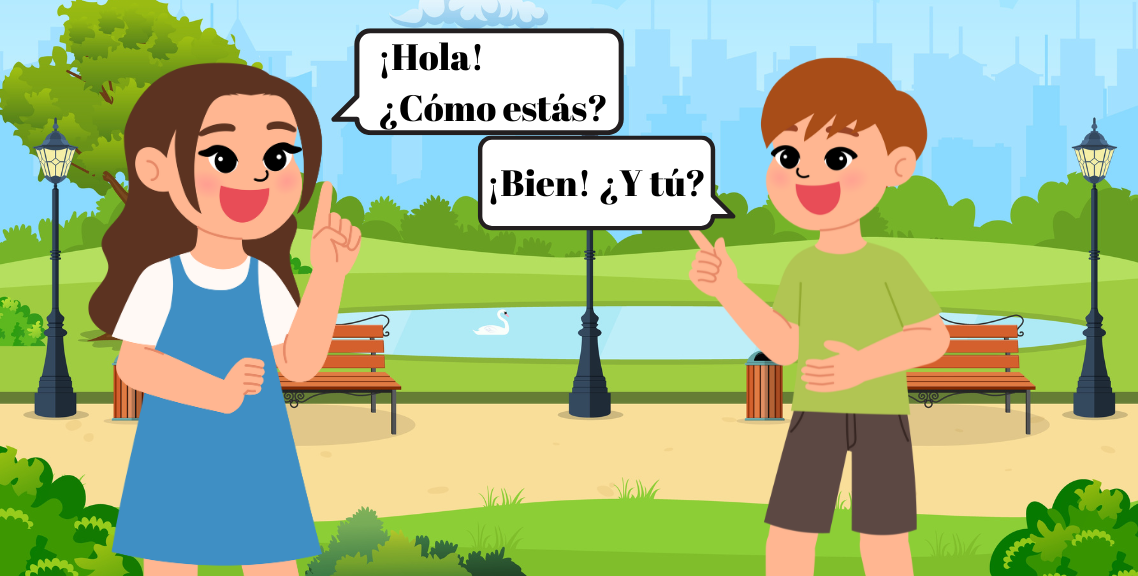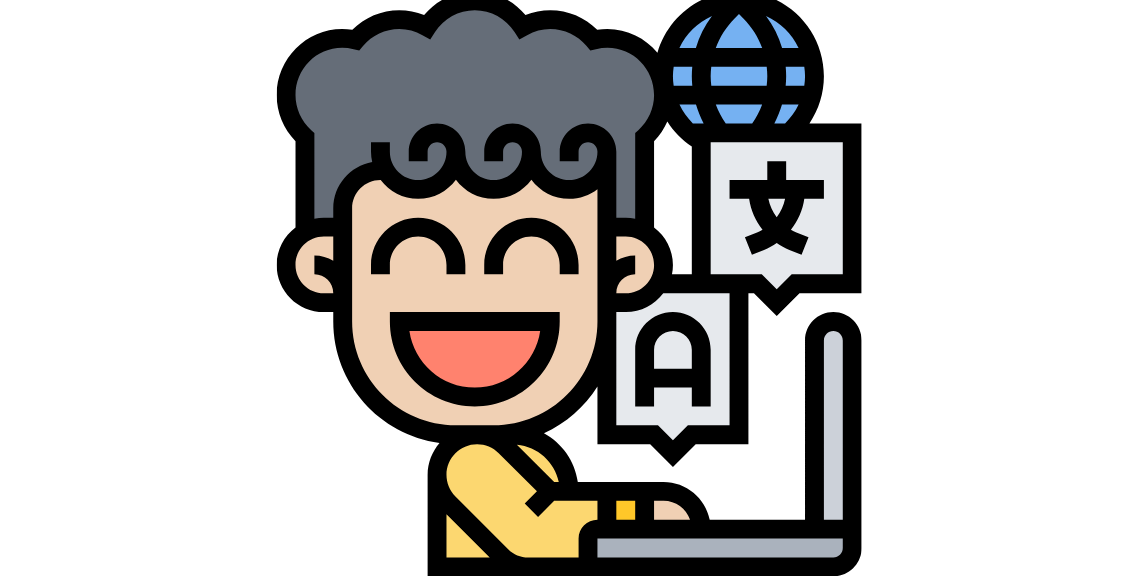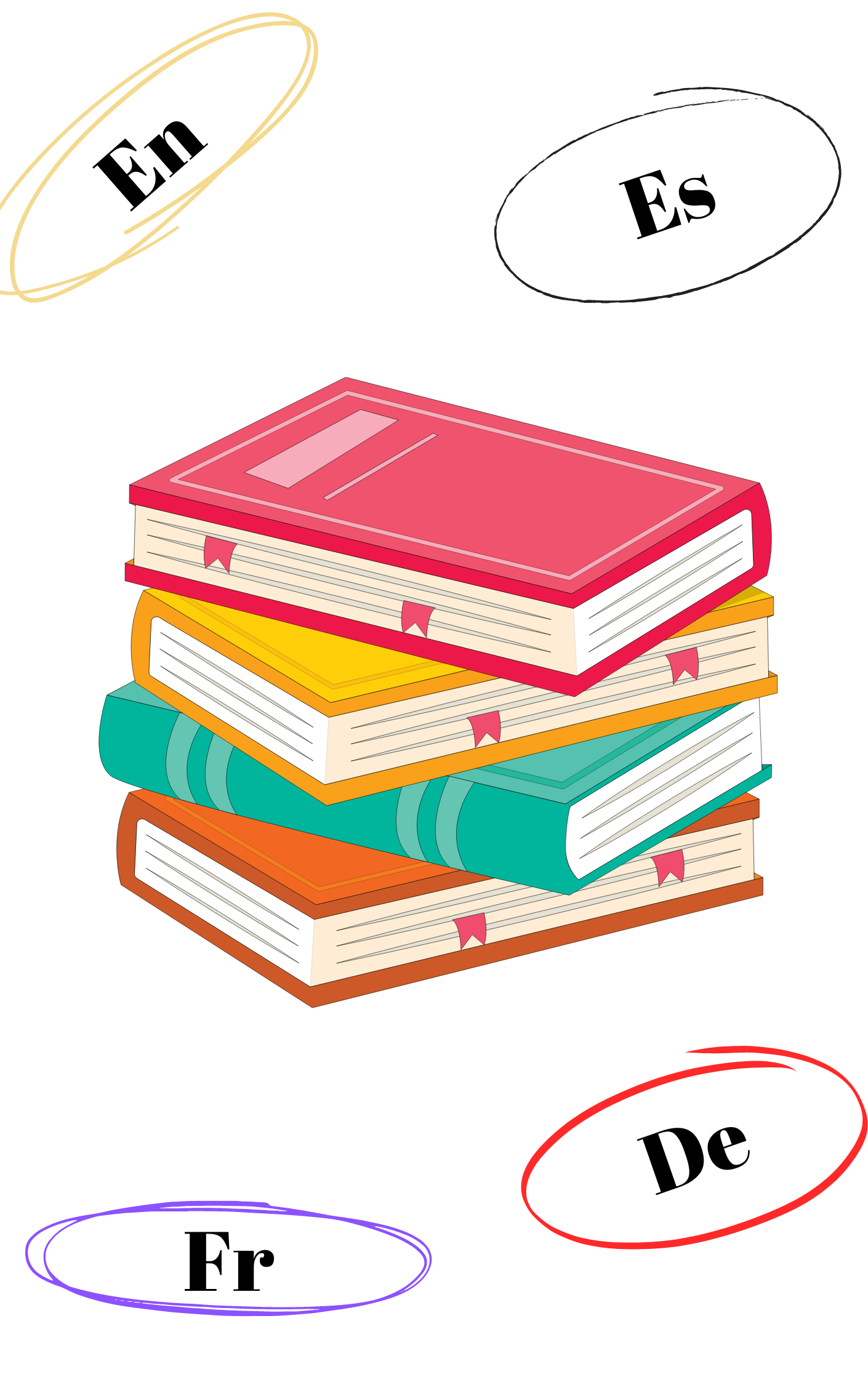To greet, to thank, to say goodbye.
n this article, we will look at basic Spanish vocabulary for greeting, thanking, apologizing, and saying goodbye. Although we’ll be covering very basic vocabulary, learning a language has to start somewhere, and this vocabulary is a great way to begin. Culturally, Spanish speakers—unlike people from some other cultures—are generally not particularly demanding when it comes to the language competence of learners. This means that by learning this small list of words, not only will you have a basic vocabulary foundation, but you’ll also make interactions with native Spanish speakers easier, since using even just a few words in the language is usually appreciated. Let's go!
Greetings.
Hola. Hello. Informal, used in any situation and at any time.
Buenos días. Good morning. Formal or informal, used in the morning, until 12 noon.
Buenas tardes. Good afternoon. Formal or informal, used from noon until it gets dark.
Buenas noches. Good evening, good night. Formal or informal, used from dusk. Unlike other languages, it is used both as a greeting and a goodbye, meaning “buenas noches” is said when leaving a place or even when going to sleep.
¿Cómo estás? (Informal) ¿Cómo está? (Formal). How are you? Used to ask someone about their well-being.
¿Cómo te va? (Informal) ¿Cómo le va? (Formal) Similar to how do you do. Same as the latter.
¿Qué tal? Same.
These greetings can be combined. It is very common, for example, to say “Hola, ¿qué tal?”, “Hola, buenas tardes, ¿cómo estás?”, “Buenos días, ¿cómo te va?”, etc. Additionally, unlike other cultures, in Spanish asking someone how they are is a form of courtesy, and a detailed answer is not expected. The most common response to “¿Cómo estás?” is “Bien, ¿y tú?” and to “¿Cómo te va?” is “Bien, ¿y a ti?”. I make this clarification because, in other cultures, such as the Germanic culture, when one asks these types of questions, it is because they genuinely want to know how the other person is. In Spanish, these courtesy formulas are used in many situations, even with strangers, such as at the checkout of a supermarket. Therefore, to let someone know that we really want them to tell us how they are, context plays a role, meaning the person should be someone we know and genuinely want to know about, along with paralinguistic signals, etc.
Farewells.
Adiós. Used in any situation, formal or informal.
Chau, chao: informal.
Hasta luego. Until later. It can mean that the people saying goodbye will see each other again later, although it is also commonly used in situations where that will not happen.
Hasta pronto. Until soon.Same as hasta luego.
Nos vemos (luego, después). Something like “we see us later”. Informal.
Que tenga(s) un buen día.Have a nice day. Formal or informal depending on the verb conjugation, it is used to wish the person we are saying goodbye to a good day.
Buena jornada. It refers more to the workday, meaning it is used mainly to say goodbye to people who are working.
The use of formal or informal forms, that is, the use of “tú” or “usted,” depends on each country. In Uruguay, for example, the language is quite informal, so the use of “usted” is reserved for very formal settings, but this is not the case in all countries. The recommendation in these cases, when visiting a Spanish-speaking country, is to use “usted” in all situations where common sense dictates, and to try to listen to interactions between natives to see how formal or informal the colloquial use of the language is. Alternatively, one can seek advice from a native of the area, as in certain variants of the language, even the use of “usted” can have an informal value.
Thanking and apologizing.
Gracias. Thanks, thank you. The most common way to thank, used in any situation.
Muchas gracias. Thank you very much. A bit more emphatic.
Muchísimas gracias, mil gracias. Thank you so much, a thousand thanks. Much more emphatic, generally used when someone has done us a big favor.
De nada. You’re welcome. It is the response to the previous expressions of thanks.
Por favor. Please. Used in any situation to ask for something politely. In informal situations, “porfa” or “porfas” can be used.
Disculpa/Disculpe (Informal/Formal): similar to excuse me. used to apologize for any inconvenience we may have caused, for example, or to politely get someone’s attention.
Perdón. Sorry. It is used to apologize to someone.
The use of this vocabulary will, of course, generate responses in Spanish. If this vocabulary is all the Spanish we know, it will be enough to say “No hablo español” or “Hablo muy poco español.” And I repeat, in general, using even a few words in Spanish will be appreciated in the Spanish-speaking world. Lastly, to politely ask if our conversation partner speaks our language, we can ask, “Disculpe, ¿habla inglés/alemán/francés?”. I use these three languages as examples because they are the ones I use in this blog. I hope these lines have been useful to you. Thank you for reading!






Leave a Reply